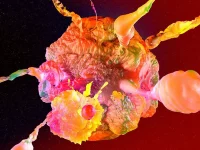Nobel. Patti Smith. How does it feel

ITS HARD. I was born in Chicago on December 30, 1946, within the vortex of a huge snowstorm. My father had to help the taxi-driver navigate Lake Shore Drive with the windows wide open, while my mother was in labor. I was a scrawny baby, and my father worked to keep me alive, holding me over a steamy washtub to help me breathe. I will think of them both when I step on the stage of the Riviera Theatre, in Chicago, on my seventieth birthday, with my band, and my son and daughter.
Despite the emotionally wrenching atmosphere that has engulfed us during the Presidential election, I have tried to spend December immersed in positive work, tending to the needs of my family, and preparations for the new year. But, before Chicago, I had yet to perform a last important duty for 2016. In September, I was approached to sing at the Nobel Prize ceremony, honoring the laureate for literature, who was then unknown. It would be a few days in Stockholm, in a beautiful hotel, overlooking the water—an honorable opportunity to shine, contemplate, and write. I chose one of my songs that I deemed appropriate to perform with the orchestra.
But when it was announced that Bob Dylan had won the prize and accepted, it seemed no longer fitting for me to sing my own song. I found myself in an unanticipated situation, and had conflicting emotions. In his absence, was I qualified for this task? Would this displease Bob Dylan, whom I would never desire to displease? But, having committed myself and weighing everything, I chose to sing “A Hard Rain’s A-Gonna Fall,” a song I have loved since I was a teen-ager, and a favorite of my late husband.
From that moment, every spare moment was spent practicing it, making certain that I knew and could convey every line. Having my own blue-eyed son, I sang the words to myself, over and over, in the original key, with pleasure and resolve. I had it in my mind to sing the song exactly as it was written and as well as I was capable of doing. I bought a new suit, I trimmed my hair, and felt that I was ready.
On the morning of the Nobel ceremony, I awoke with some anxiety. It was pouring rain and continued to rain heavily. As I dressed, I went over the song confidently. In the hotel lobby, there was a lovely Japanese woman in formal traditional dress—an embroidered cream-colored floor-length kimono and sandals. Her hair was perfectly coiffed. She told me that she was there to honor her boss, who was receiving the Nobel Prize in Medicine, but the weather was not in her favor. You look beautiful, I told her; no amount of wind and rain could alter that. By the time I reached the concert hall, it was snowing. I had a perfect rehearsal with the orchestra. I had my own dressing room with a piano, and I was brought tea and warm soup. I was aware that people were looking forward to the performance. Everything was before me.
I thought of my mother, who bought me my first Dylan album when I was barely sixteen. She found it in the bargain bin at the five-and-dime and bought it with her tip money. “He looked like someone you’d like,” she told me. I played the record over and over, my favorite being “A Hard Rain’s A-Gonna Fall.” It occurred to me then that, although I did not live in the time of Arthur Rimbaud, I existed in the time of Bob Dylan. I also thought of my husband and remembered performing the song together, picturing his hands forming the chords.
And then suddenly it was time. The orchestra was arranged on the balcony overlooking the stage, where the King, the royal family, and the laureates were seated. I sat next to the conductor. The evening’s proceedings went as planned. As I sat there, I imagined laureates of the past walking toward the King to accept their medals. Hermann Hesse, Thomas Mann, Albert Camus. Then Bob Dylan was announced as the Nobel Laureate in Literature, and I felt my heart pounding. After a moving speech dedicated to him was read, I heard my name spoken and I rose. As if in a fairy tale, I stood before the Swedish King and Queen and some of the great minds of the world, armed with a song in which every line encoded the experience and resilience of the poet who penned them.
The opening chords of the song were introduced, and I heard myself singing. The first verse was passable, a bit shaky, but I was certain I would settle. But instead I was struck with a plethora of emotions, avalanching with such intensity that I was unable to negotiate them. From the corner of my eye, I could see the the huge boom stand of the television camera, and all the dignitaries upon the stage and the people beyond. Unaccustomed to such an overwhelming case of nerves, I was unable to continue. I hadn’t forgotten the words that were now a part of me. I was simply unable to draw them out.
This strange phenomenon did not diminish or pass but stayed cruelly with me. I was obliged to stop and ask pardon and then attempt again while in this state and sang with all my being, yet still stumbling. It was not lost on me that the narrative of the song begins with the words “I stumbled alongside of twelve misty mountains,” and ends with the line “And I’ll know my song well before I start singing.” As I took my seat, I felt the humiliating sting of failure, but also the strange realization that I had somehow entered and truly lived the world of the lyrics.
Later, at the Nobel banquet, I sat across from the American Ambassador—a beautiful, articulate Iranian-American. She had the task of reading a letter from Dylan before the banquet’s conclusion. She read flawlessly, and I could not help thinking that he had two strong women in his corner. One who faltered and one who did not, yet both had nothing in mind but to serve his work well.
When I arose the next morning, it was snowing. In the breakfast room, I was greeted by many of the Nobel scientists. They showed appreciation for my very public struggle. They told me I did a good job. I wish I would have done better, I said. No, no, they replied, none of us wish that. For us, your performance seemed a metaphor for our own struggles. Words of kindness continued through the day, and in the end I had to come to terms with the truer nature of my duty. Why do we commit our work? Why do we perform? It is above all for the entertainment and transformation of the people. It is all for them. The song asked for nothing. The creator of the song asked for nothing. So why should I ask for anything?
When my husband, Fred, died, my father told me that time does not heal all wounds but gives us the tools to endure them. I have found this to be true in the greatest and smallest of matters. Looking to the future, I am certain that the hard rain will not cease falling, and that we will all need to be vigilant. The year is coming to an end; on December 30th, I will perform “Horses” with my band, and my son and daughter, in the city where I was born. And all the things I have seen and experienced and remember will be within me, and the remorse I had felt so heavily will joyfully meld with all other moments. Seventy years of moments, seventy years of being human.
You can read Dylan’s speech, which was read by United States Ambassador to Sweden Azita Raji, below:
Good evening, everyone. I extend my warmest greetings to the members of the Swedish Academy and to all of the other distinguished guests in attendance tonight.
I’m sorry I can’t be with you in person, but please know that I am most definitely with you in spirit and honored to be receiving such a prestigious prize. Being awarded the Nobel Prize for Literature is something I never could have imagined or seen coming. From an early age, I’ve been familiar with and reading and absorbing the works of those who were deemed worthy of such a distinction: Kipling, Shaw, Thomas Mann, Pearl Buck, Albert Camus, Hemingway. These giants of literature whose works are taught in the schoolroom, housed in libraries around the world and spoken of in reverent tones have always made a deep impression. That I now join the names on such a list is truly beyond words.
I don’t know if these men and women ever thought of the Nobel honor for themselves, but I suppose that anyone writing a book, or a poem, or a play anywhere in the world might harbor that secret dream deep down inside. It’s probably buried so deep that they don’t even know it’s there.
If someone had ever told me that I had the slightest chance of winning the Nobel Prize, I would have to think that I’d have about the same odds as standing on the moon. In fact, during the year I was born and for a few years after, there wasn’t anyone in the world who was considered good enough to win this Nobel Prize. So, I recognize that I am in very rare company, to say the least.
I was out on the road when I received this surprising news, and it took me more than a few minutes to properly process it. I began to think about William Shakespeare, the great literary figure. I would reckon he thought of himself as a dramatist. The thought that he was writing literature couldn’t have entered his head. His words were written for the stage. Meant to be spoken not read. When he was writing Hamlet, I’m sure he was thinking about a lot of different things: « Who’re the right actors for these roles? » « How should this be staged? » « Do I really want to set this in Denmark? » His creative vision and ambitions were no doubt at the forefront of his mind, but there were also more mundane matters to consider and deal with. « Is the financing in place? » « Are there enough good seats for my patrons? » « Where am I going to get a human skull? » I would bet that the farthest thing from Shakespeare’s mind was the question « Is this literature? »
When I started writing songs as a teenager, and even as I started to achieve some renown for my abilities, my aspirations for these songs only went so far. I thought they could be heard in coffee houses or bars, maybe later in places like Carnegie Hall, the London Palladium. If I was really dreaming big, maybe I could imagine getting to make a record and then hearing my songs on the radio. That was really the big prize in my mind. Making records and hearing your songs on the radio meant that you were reaching a big audience and that you might get to keep doing what you had set out to do.
Well, I’ve been doing what I set out to do for a long time, now. I’ve made dozens of records and played thousands of concerts all around the world. But it’s my songs that are at the vital center of almost everything I do. They seemed to have found a place in the lives of many people throughout many different cultures and I’m grateful for that.
But there’s one thing I must say. As a performer I’ve played for 50,000 people and I’ve played for 50 people and I can tell you that it is harder to play for 50 people. 50,000 people have a singular persona, not so with 50. Each person has an individual, separate identity, a world unto themselves. They can perceive things more clearly. Your honesty and how it relates to the depth of your talent is tried. The fact that the Nobel committee is so small is not lost on me.
But, like Shakespeare, I too am often occupied with the pursuit of my creative endeavors and dealing with all aspects of life’s mundane matters. « Who are the best musicians for these songs? » « Am I recording in the right studio? » « Is this song in the right key? » Some things never change, even in 400 years.
Not once have I ever had the time to ask myself, « Are my songs literature? »
So, I do thank the Swedish Academy, both for taking the time to consider that very question, and, ultimately, for providing such a wonderful answer.
My best wishes to you all,
Bob Dylan










